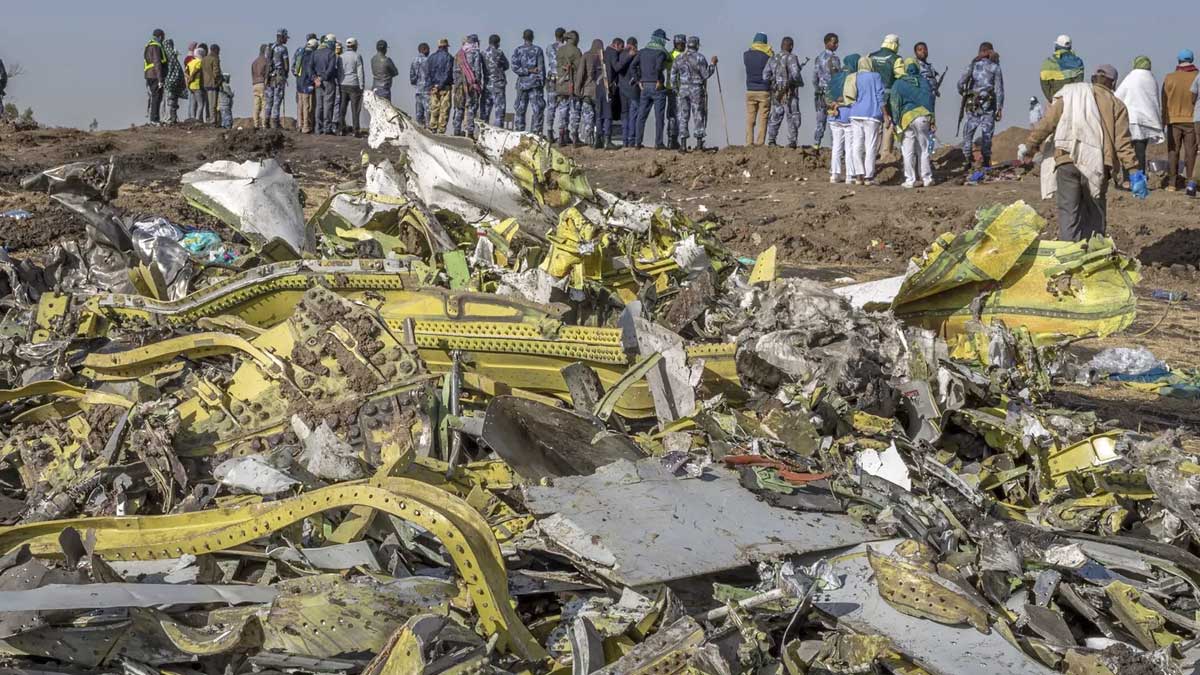- Home
- Billionaires
- Investing Newsletters
- 193CC 1000
- Article Layout 2
- Article Layout 3
- Article Layout 4
- Article Layout 5
- Article Layout 6
- Article Layout 7
- Article Layout 8
- Article Layout 9
- Article Layout 10
- Article Layout 11
- Article Layout 12
- Article Layout 13
- Article Layout 14
- Article Sidebar
- Post Format
- pages
- Archive Layouts
- Post Gallery
- Post Video Background
- Post Review
- Sponsored Post
- Leadership
- Business
- Money
- Small Business
- Innovation
- Shop
Recent Posts
Boeing to Plead Guilty, Pay $487.2 Million for 737 Max Crashes

Boeing has reached a crucial settlement with the Justice Department, agreeing to plead guilty to a charge of conspiracy to commit fraud. This plea deal is a significant development in the legal proceedings related to the tragic crashes of two Boeing 737 Max aircraft, which resulted in the deaths of 346 people in 2018 and 2019. The agreement allows Boeing to avoid a protracted federal criminal trial by admitting guilt to a felony charge that accuses the company of misleading federal regulators about the safety of its 737 Max aircraft.
Under the terms of the settlement, Boeing has agreed to plead guilty to a charge of “conspiracy to defraud the United States,” specifically targeting the misconduct involving the Federal Aviation Administration’s (FAA) Aircraft Evaluation Group. This charge reflects allegations that Boeing deliberately misled the FAA about the safety features and operational reliability of the 737 Max. The plea deal is a strategic maneuver by Boeing to resolve the legal issues stemming from these crashes without undergoing a full-scale trial, which could have exposed the company to additional scrutiny and potential liabilities.
As part of the agreement, Boeing will pay an additional $243.6 million fine. This fine is the same amount that Boeing had previously agreed to pay as part of a 2021 settlement but was later accused of violating. The total financial liability for Boeing now stands at $487.2 million, which is the maximum penalty allowed under the law for the offenses it has admitted. This substantial fine underscores the severity of the company’s misconduct and its failure to adequately address safety concerns.
In addition to the financial penalties, Boeing has committed to investing approximately $455 million over the next three years to enhance its compliance and safety programs. This investment is intended to address the deficiencies in Boeing’s safety practices and to prevent similar incidents in the future. The commitment includes funding for new safety initiatives, improved training for employees, and enhancements to the company’s internal oversight mechanisms. This move is aimed at restoring public and regulatory trust in Boeing’s operations.
The plea deal requires approval by a federal judge before it can be finalized. It specifically addresses Boeing’s actions related to the two fatal crashes of 737 Max aircraft but does not provide immunity from other investigations or legal challenges. For example, Boeing remains under scrutiny for a separate incident involving an Alaska Airlines flight in January, where a door plug malfunctioned shortly after takeoff. This incident is subject to a separate criminal investigation, and the plea deal does not cover these additional issues.
The two fatal crashes involving the 737 Max had far-reaching implications for both Boeing and the aviation industry. The first crash occurred in October 2018 when a Lion Air flight, operated by an Indonesian low-cost carrier, plunged into the Java Sea just minutes after takeoff, killing all 189 people aboard. The second crash happened in March 2019, when an Ethiopian Airlines 737 Max crashed shortly after takeoff, resulting in the deaths of all 157 people on board. These tragedies led to a global grounding of the 737 Max fleet and prompted a re-evaluation of Boeing’s safety practices and regulatory oversight.
In 2021, Boeing reached a $2.5 billion settlement to resolve criminal charges related to the 737 Max crashes. This settlement included a $243.6 million fine, $1.77 billion in compensation to airlines affected by the grounding of the 737 Max, and $500 million to the families of the crash victims. Despite this settlement, Boeing faced accusations in May of this year that it had violated the terms of the agreement, leading to the current plea deal.
The plea agreement represents a pivotal moment in Boeing’s efforts to resolve its legal troubles but leaves the company exposed to continued scrutiny. The settlement does not preclude the company from facing additional legal challenges or regulatory actions. The broader implications of this deal highlight ongoing issues within the aerospace industry regarding safety, compliance, and corporate accountability. Boeing’s commitment to substantial financial penalties and investments in safety improvements reflects an attempt to address these concerns and to prevent future tragedies.
In summary, while the plea deal with the Justice Department represents a significant step in resolving the legal fallout from the 737 Max crashes, it also signifies ongoing challenges for Boeing. The company remains under examination for other potential issues and must demonstrate its commitment to safety and compliance to rebuild its reputation and ensure the trust of regulators and the public.
Recent Posts
Categories
- 193 Countries Consortium Partner1
- 193cc Digital Assets2
- 5G1
- Aerospace & Defense48
- AI37
- Arts3
- Banking & Insurance11
- Big Data3
- Billionaires1,467
- Boats & Planes1
- Business332
- Careers13
- Cars & Bikes79
- CEO Network1
- CFO Network17
- CHRO Network1
- CIO Network1
- Cloud10
- CMO Network18
- Commercial Real Estate7
- Consultant1
- Consumer Tech194
- CxO1
- Cybersecurity73
- Dining1
- Diversity, Equity & Inclusion4
- Education7
- Energy8
- Enterprise Tech29
- Events11
- Fintech1
- Food & Drink2
- Franchises1
- Freelance1
- Future Of Work2
- Games149
- GIG1
- Healthcare79
- Hollywood & Entertainment203
- Houses1
- India’s 1000 Richest1
- Innovation46
- Investing2
- Investing Newsletters4
- Leadership65
- Lifestyle11
- Manufacturing1
- Markets20
- Media327
- Mobile phone1
- Money13
- Personal Finance2
- Policy569
- Real Estate1
- Research6
- Retail1
- Retirement1
- Small Business1
- SportsMoney42
- Style & Beauty1
- Success Income1
- Taxes2
- Travel10
- Uncategorized14
- Vices1
- Watches & Jewelry2
- world's billionaires1,436
- Worlds Richest Self-Made Women2
Related Articles
South Korea Plane Crash: A Tragic Loss and Global Mourning
The tragic plane crash at South Korea’s Muan International Airport on Sunday...
By 193cc Agency CouncilDecember 30, 2024H-1B Visa Debate Splits Trump Allies and Silicon Valley
The debate over H-1B visas has once again become a contentious issue,...
By 193cc Agency CouncilDecember 28, 2024Trump Moves $4B Stake in Truth Social Parent, Stock Drops 6%
Donald Trump recently transferred his 57% stake in Trump Media & Technology...
By 193cc Agency CouncilDecember 20, 2024House Rejects Trump-Backed Funding Bill, Shutdown Looms
The U.S. House of Representatives rejected a new government funding bill on...
By 193cc Agency CouncilDecember 20, 2024















Leave a comment